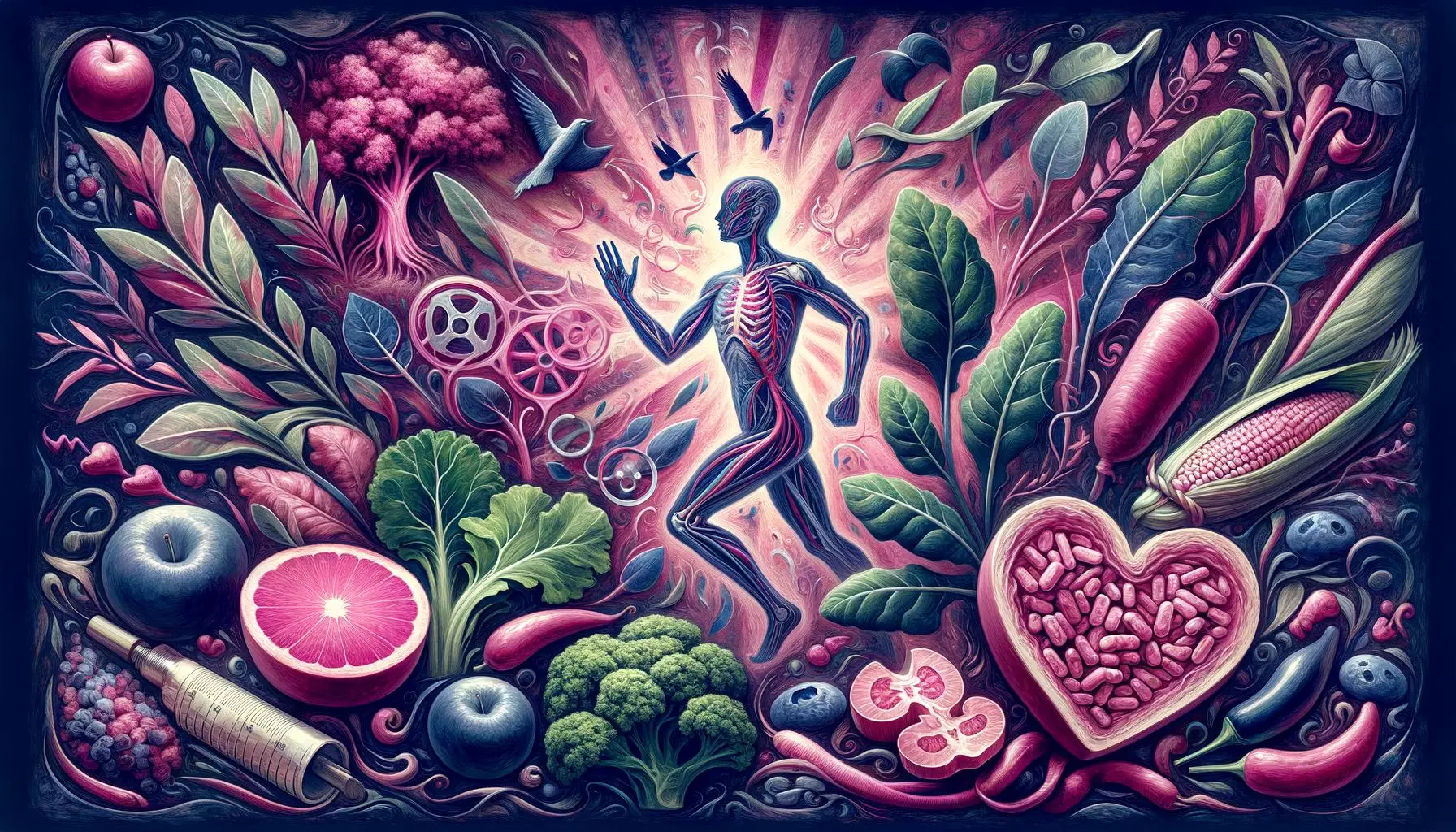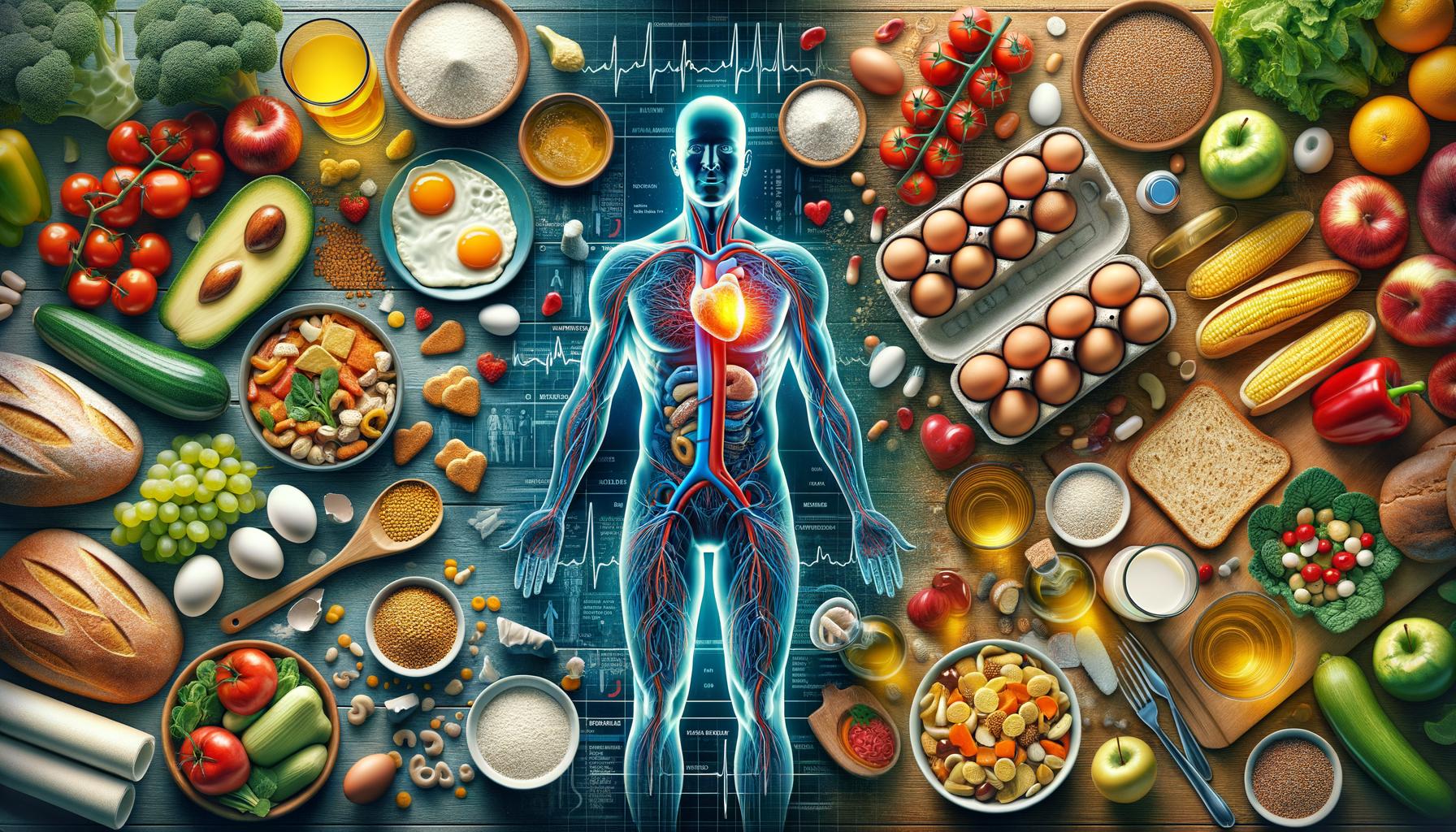· nutrition · 10 min read
Unlocking Vitamin K's Diverse Health Benefits
Explore the multifaceted roles of Vitamin K beyond blood clotting, including its impact on bone density and cardiovascular health, and learn about its sources and benefits.

In This Post
The Fact Why Should I Care How To Put In Action Start Tomorrow Guide How does it effect my ability to focus How does it impact my daily life How does it help me make friends How does it help me manage stress How does it effect my mood Summary: Remember Refresher Checklist The Full Research Article CitationsPrint Out The Tomorrow Checklist!
Sign up for our newsletter and receive a copy today, so that, you can start tomorrow! Or the next day, or the day after that. I forget everything and starting things is hard at least for me so these checklists are godsend.
Print Out The Remember Refresher Checklist!
Sign up for our newsletter and download your own copy of the Remember Refresher Checklist, so that, you can easily put it on your fridge and help you stay on target towards your WHY. Every little bit helps.
Introduction to Vitamin K’s Vital Roles

Understanding Vitamin K: More Than Blood Clotting
When you hear about Vitamin K, the first thing that probably comes to mind is its role in blood clotting. Indeed, this essential nutrient is crucial for preventing excessive bleeding by helping blood coagulate. However, Vitamin K’s importance extends far beyond just clotting. Recent research highlights its critical part in maintaining bone density, protecting cardiovascular health, and even preventing calcification in our arteries and soft tissues. This broad spectrum of benefits underscores why Vitamin K should not be overlooked in your diet.
The Dual Forms of Vitamin K: K1 and K2
Vitamin K is not a single entity but comes in two primary forms: Vitamin K1 and Vitamin K2. Understanding the distinction between these two is key for harnessing their health benefits.
- Vitamin K1 (Phylloquinone): Predominantly found in green leafy vegetables like spinach, kale, and broccoli, K1 is primarily involved in blood clotting.
- Vitamin K2 (Menaquinone): This form is found in fermented foods and some animal products. K2 plays a significant role in bone health, cardiovascular health, and calcium binding.
By including a diverse range of Vitamin K-rich foods in your diet, you can ensure your body is well-equipped to perform these vital functions. Here’s a quick checklist to help you incorporate both forms of Vitamin K into your meals:
- [ ] Include a serving of leafy greens in at least one meal each day for a boost of Vitamin
K1.
- [ ] Experiment with fermented foods like sauerkraut, natto, or kefir to increase your
Vitamin K2 intake.
- [ ] For those who consume animal products, adding a serving of high-fat dairy or liver can
provide a significant source of Vitamin K2.
- [ ] Consider a Vitamin K supplement if you're unable to get enough from your diet, after
consulting with a healthcare provider.
Embracing a diet rich in Vitamin K is essential for more than just blood clotting; it supports your overall health in numerous unseen yet impactful ways. Stay tuned as we delve deeper into each form of Vitamin K, their sources, benefits, and the science behind their health contributions in the upcoming sections.
Exploring Vitamin K1 and Its Sources

Vitamin K1: The Green Powerhouse
Vitamin K1, scientifically known as phylloquinone, plays a critical role in our health, well beyond its well-known function in blood clotting. Found predominantly in green leafy vegetables, K1 is an essential nutrient that supports bone density and cardiovascular health. This vitamin works by enabling the activation of proteins that bind calcium in bones and teeth, thus preventing the calcification of blood vessels and kidneys, a key factor in maintaining cardiovascular health.
Leafy greens such as kale, spinach, and broccoli are not just versatile culinary ingredients; they are also the most potent sources of Vitamin K1, making them invaluable components of a balanced diet. These greens don’t just contribute to bone health; they also play a part in preventing osteoporosis and enhancing heart health through their support of proper calcium placement in the body.
How to Incorporate More K1 into Your Diet
Integrating more Vitamin K1-rich foods into your diet can have profound benefits for your health. Here are simple, effective ways to ensure you’re getting enough of this essential nutrient:
- Start your day with a smoothie packed with leafy greens like spinach or kale.
- Add a side salad to your meals, using a mix of Vitamin K1-rich greens.
- Incorporate cooked greens as a side dish to your dinners. Steaming or lightly sautéing can
enhance the greens' flavor.
- Experiment with herbs like parsley or cilantro, which are also good sources of K1, in your
recipes.
- If you're not a fan of greens, consider a Vitamin K1 supplement, consulting with a
healthcare provider first.
Given the critical roles that Vitamin K1 plays in blood clotting, bone density, and cardiovascular health, a conscientious effort to include more of its sources in our diets is a valuable step in disease prevention and health maintenance. By embracing the green powerhouse that is Vitamin K1 and exploring the nutritional diversity of leafy greens, we can bolster our bodies’ calcium binding and clotting capabilities, making strides towards holistic health and well-being.
Unveiling Vitamin K2 and Its Superior Benefits

K2: The Unsung Hero for Heart and Bone Health
While Vitamin K1 garners attention for its role in blood clotting and availability in leafy greens, Vitamin K2 is an unsung hero for heart and bone health. Classified under the term ‘menaquinones’, Vitamin K2 plays crucial roles beyond what K1 offers, particularly in the realm of cardiovascular health and bone density.
Vitamin K2’s benefits are far-reaching, ensuring calcium is directed to the right places within your body. Instead of allowing calcium to deposit in the arteries and soft tissues, a process potentially leading to atherosclerosis or artery hardening, K2 aids in the incorporation of calcium into bone tissue. This action is vital not only for bone health but also for preventing the calcification of blood vessels, thereby supporting heart health.
Emerging research presents Vitamin K2 as influential in reducing the risk of cardiovascular diseases by potentially lowering arterial stiffness. Osteoporosis prevention is another significant benefit, with evidence showing K2’s role in improving bone strength and reducing fracture risk.
Emerging Evidence on K2’s Role in Calcium Metabolism
The metabolic pathways activated by Vitamin K2 are essential for calcium binding in the bones and preventing unwanted calcification in the arteries. This dual action exemplifies K2’s critical involvement in calcium metabolism, a vital process for sustaining life and ensuring the proper functioning of various bodily systems.
Studies are increasingly highlighting the superior benefits of K2 in calcium metabolism. Unlike Vitamin K1, which is primarily focused on blood clotting, K2 activates proteins that play a direct role in bone mineralization and arterial health. These include osteocalcin, which is responsible for incorporating calcium into bone, and matrix Gla protein (MGP), which prevents calcium from depositing in the arteries.
To encapsulate the importance of Vitamin K2 in your diet, consider the following checklist to ensure you’re receiving adequate amounts:
- [ ] Consume K2-rich foods weekly, such as natto, cheese, and fermented foods.
- [ ] If on a plant-based diet, consider K2 supplements derived from bacterial fermentation.
- [ ] Discuss with a healthcare provider to understand if your current diet supports optimal
K2 intake.
- [ ] Pay attention to signs of calcium deficiency or excess, and consult a healthcare
professional for advice.
- [ ] Stay informed about new research on Vitamin K2 and its evolving understanding in
nutritional science.
The emerging evidence on Vitamin K2’s role in health maintenance cannot be overstated. It underscores the need for a balanced diet that includes a variety of nutritional sources, including those rich in K2, to support metabolic pathways critical for heart health and osteoporosis prevention. Incorporating K2 into your diet can be one of the many steps toward achieving long-term health and well-being.
The Science Behind Vitamin K and Health

Vital Functions: Bone Density and Cardiovascular Health
Vitamin K plays a pivotal role in maintaining bone density and ensuring cardiovascular health. This nutrient is essential for the proper functioning of a protein called osteocalcin, which is involved in bone formation and repair. By activating osteocalcin, vitamin K helps the body use calcium effectively to build strong bones, reducing the risk of osteoporosis and fractures.
For the heart and blood vessels, vitamin K ensures that calcium finds its right place in the body. It helps prevent calcium from depositing in the walls of blood vessels and other tissues, a process known as vascular calcification, which is a significant risk factor for cardiovascular diseases. By keeping calcium in the bones and out of the arteries, vitamin K supports both bone and cardiovascular health.
Preventing Calcification: Keeping Kidneys and Vessels Healthy
The role of vitamin K extends to preventing calcification in soft tissues and the cardiovascular system, which is pivotal for kidney and vessel health. Calcification can lead to kidney stones and contribute to arterial stiffness, a marker of cardiovascular risk. Through its action on matrix Gla-protein (MGP), a potent inhibitor of vascular calcification, vitamin K helps keep the kidneys functioning correctly and the blood vessels flexible, promoting overall cardiovascular health.
Vitamin K’s Role in Activating Essential Proteins
Vitamin K is crucial for activating proteins that play vital roles in blood clotting, bone metabolism, and cardiovascular health. It acts as a cofactor for the enzyme gamma-glutamyl carboxylase, which modifies specific proteins, allowing them to bind calcium ions. This action is fundamental for the activation of the proteins involved in blood clotting and the prevention of uncontrolled bleeding, as well as for those that regulate mineral deposition in bones and the cardiovascular system.
Comparing K1 and K2: Efficiency in Health Support
While both forms of vitamin K are crucial for health, they have different sources and roles in the body:
- Vitamin K1 is primarily found in leafy greens and is essential for the liver’s blood clotting process.
- Vitamin K2, found in fermented foods and animal products, is more efficient in supporting bone density, cardiovascular health, and preventing calcification.
Vitamin K2 is believed to be more effective than K1 in activating proteins related to bone health and calcium metabolism, making it a critical focus for nutritional strategies aimed at improving overall health.
# Checklist for Maximizing Vitamin K Benefits
- [ ] Include leafy greens in daily meals for Vitamin K1
- [ ] Incorporate fermented foods and dairy for Vitamin K2
- [ ] Seek balanced meals that combine different Vitamin K sources
- [ ] Consider supplementation after consulting a healthcare provider
- [ ] Monitor Vitamin K intake if on blood-thinning medications
Understanding the science behind vitamin K and its substantial health benefits is crucial. By focusing on a balanced diet rich in both forms of vitamin K and considering supplementation if necessary, individuals can support their bone density, cardiovascular health, and prevent the risks associated with calcification, thereby maintaining overall health and well-being.
FAQS on Vitamin K

Vitamin K plays a crucial role in various health aspects, from blood clotting to bone density and cardiovascular health. However, there are common questions surrounding its intake, sources, and potential risks. This section aims to address some frequently asked questions about Vitamin K.
What Are the Signs of Vitamin K Deficiency?
Vitamin K deficiency can lead to several health issues, primarily related to blood clotting and bone health. Individuals with Vitamin K deficiency might experience:
- Easy bruising
- Excessive bleeding from wounds or punctures
- Bleeding gums or nosebleeds
- Weak bone structure, leading to osteoporosis
It’s important to recognize these signs early and consult a healthcare professional for appropriate nutritional guidance and supplementation if necessary.
Can Vitamin K Supplements Replace a Balanced Diet?
While Vitamin K supplements are available and can help prevent or treat deficiencies, they should not be viewed as a total replacement for a balanced diet. Natural food sources of Vitamin K, such as leafy greens and fermented foods, contain a vast array of additional beneficial nutrients. A balanced diet supports overall health and wellness beyond what supplements alone can offer.
Here’s a checklist to help balance Vitamin K through diet and supplements:





